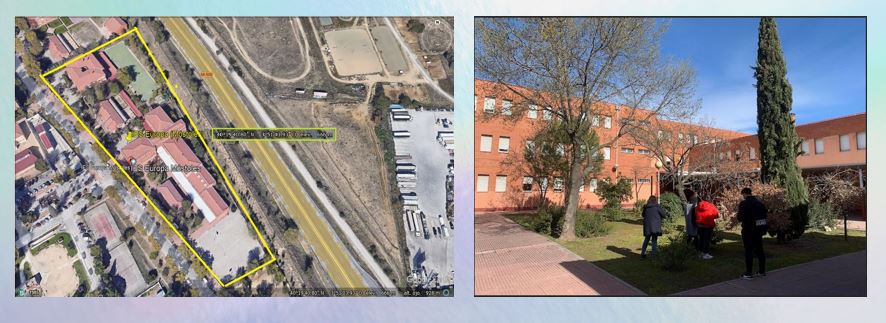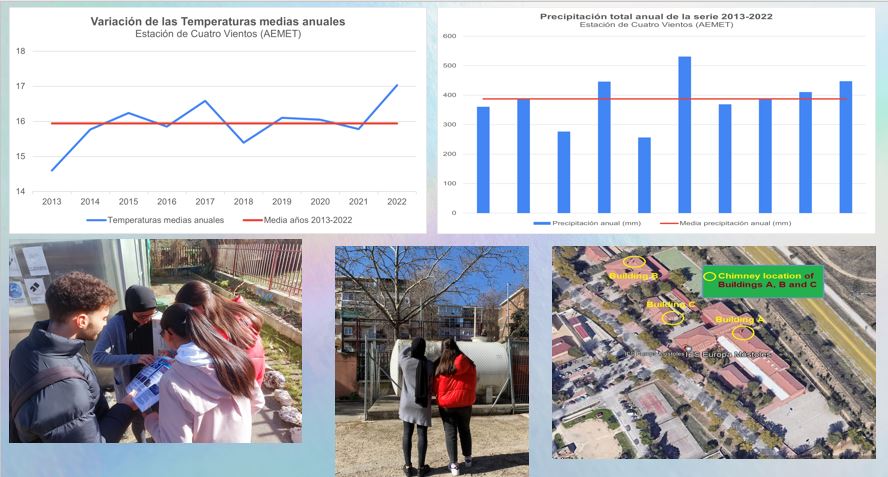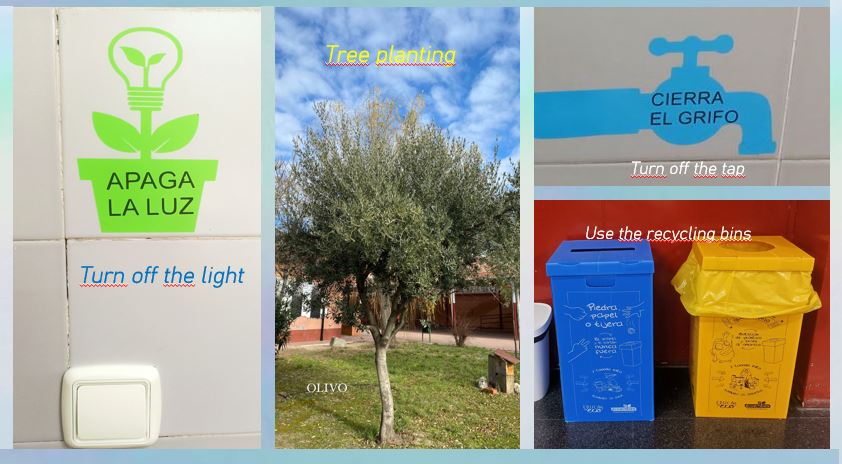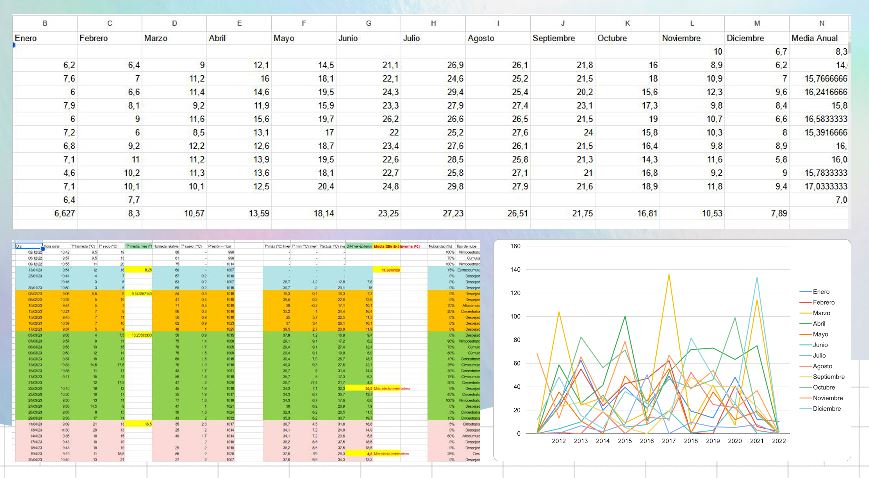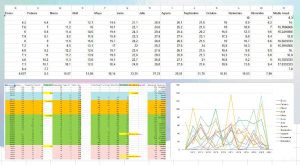Climate Detectives Projects 2022-2023
Project title: IES EUROPA FOR CLIMATE: We care about the climate change
Team: THE 9 EUROPEANS FOR CLIMATE
IES Europa Móstoles Spain 9 Student’s age: 16-17 years old, 18-19 years old
Can climate change be observed in Móstoles? How does it affect the vegetation? How high is the IES Europa school contribution to the increase of the climate change? And, how can we help to mitigate the problem?

During the first few weeks, we updated our school weather station, learnt about the atmosphere characteristics and dynamics, the weather and climate variables and how to do the meteorological data collection.
Afterward, we daily recorded the essential meteorological data using our weather station instruments and collected them in an Excel file: air temperature (dry-bulb and wet-bulb), atmospheric pressure, cloud cover, cloud type and soil temperature, and have calculated the relative humidity. In addition, we registered the air temperature inside our greenhouse in order to compare it with the outdoor value, thus verifiying the increase of the temperature due to the greenhouse air absortion of the infrared radiation.
To check the local climate change evidences, we also collected and analysed the monthly average temperature and rainfall data of the last 10 years (November 2012 to March 2023) from the nearest AEMET (Meteorological Spanish Agency) weather station, Cuatro Vientos. We created tables in Excel collecting the data and, with that information, we elaborated and analized different graphics to figure out the annual temperature and precipitation trends.
Moreover, since one of the manifestations of the climate change is the increase of the extreme weather events, we reviewed the extreme events Reports of the last 10 years in the Comunidad de Madrid, looking for events recorded by Cuatro Vientos weather station.
On the other hand, we have rewied the energy bills of our center, to be able to know the annual consumption of electricity, and of diesel of the three boilers in the buildings of our school, in order to calculate our school carbon footprint, using the information provided by the spanish Ecological Transition Ministery on the emissions of CO2 generated by the burning of diesel (2,868 Kg CO2eq/L).
Finally, we identified and revised the trees and bushes in the IES Europa gardens.
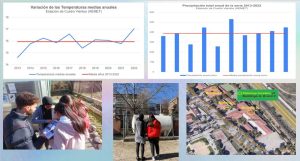
The global climate change is also observed locally in Móstoles. From the análisis of the data and graphics, we can observe a trend of raising temperatures, decreasing precipitations and more often extreme meteorological events along the analized decade, thus confirming the local climate change.
We have also verified climate change at the local level from the increase of extreme events. A whole series of extreme phenomena have been recorded at the Cuatro Vientos station along the years studied (2012 to 2022). Regarding temperature data, the years have been extremely hot from 2014 to 2022, except 2016. Regarding rainfall data, 2013, 2018 and 2019 years were extremely humid. On the contrary, 2015, 2020 and 2021 were extremely dry.
Also, monthly temperatures from November 2012 to March 2023: The months of July, in which the highest temperatures are recorded, stand out the years 2015 and 2022, the latter being the hottest month of this decade. Also striking is January 2021, with the lowest temperature records in this ten-year period due to the phenomenon known as “Filomena”. Filomena was the heaviest snowfall recorded in Spain in the last 50 years, which began on January 6, 2021 and ended five days later, on January 11th. In general, temperatures have increased little by little.
Our school contributes to the greenhouse gas emissions from two sources, the consumption of fuel in the heater boilers, and through the electricity consumption, since it comes in part from thermal power plants that burn fossil fuels. Thus, we had to know the consumptions and their equivalence in Kg de CO2.
The diesel boilers CO2 emissions revealed to be as high as 63.096 Kg CO2eq/year. Fortunately, the electricity we use is generated from 100% renewable energy sources.
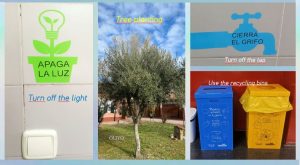
Our proposals to minimize the influence of the IES Europa on the climate change, based on our Conclusions, are:
Launching a campaing among students and their families to improve the climate change awareness and the substainable habits in our community.
Changing the old fluorescent tubes for LED tubes.
As far as possible, use public transport or bicycles to go to the school.
Disconnect electronic devices such as computers when they are not in use.
Planting more trees and bushes in our school ground and surroundings. Since vegetation absorb a lot of CO2 it is a good deal to fight climate change.
Use recycled paper to reduce the felling of trees, thus contributing to the reduction of forestation.
Recycling garbage, although we already encourage this in our center by having different containers in the buildings and the yards.
Proposing to the school Hedmaster to generate our own electricity installing solar panels and improving the isolation of the buildings.
Projects are created by the teams and they take the full responsibility of the shared data.
← All projects


